Understanding the Acidity of Alcoholic NaOH Compared to Aqueous NaOH
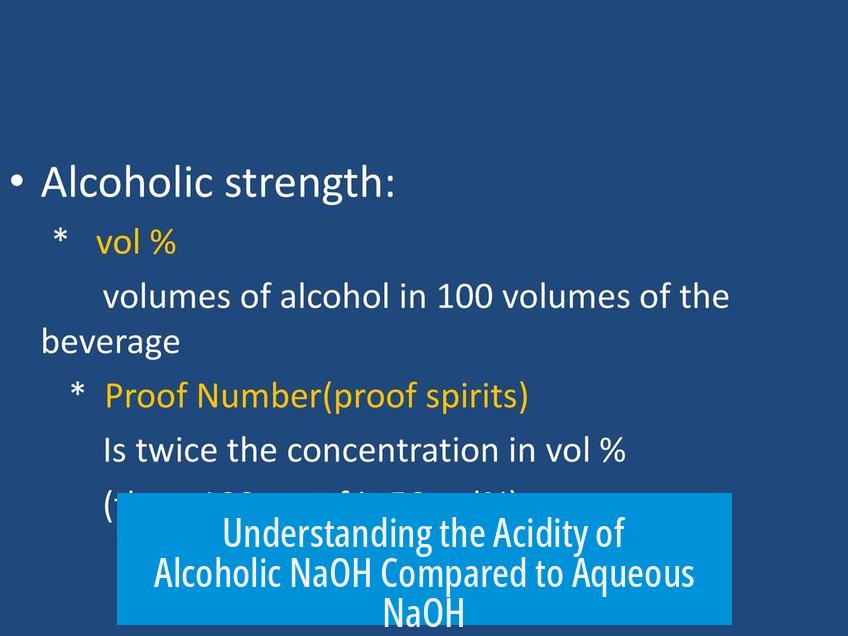
Alcoholic NaOH is not a stronger acid than aqueous NaOH; in fact, it behaves differently mainly because it is a stronger base, not a stronger acid. Alcoholic NaOH contains sodium alkoxide, a conjugate base of alcohol, which is stronger as a base than the hydroxide ion (OH−) found in aqueous NaOH. Therefore, alcoholic NaOH is less acidic, not more acidic, than aqueous NaOH.
Clarifying Acidity vs. Basicity
Acidity describes a substance’s ability to donate a proton (H+), while basicity refers to its tendency to accept a proton. Sodium hydroxide (NaOH), whether in water or alcohol, primarily acts as a base. It accepts hydrogen ions rather than donating them. Thus, NaOH’s fundamental nature is basic, not acidic.
This distinction is essential to understanding the chemistry of NaOH in different solvents like water and alcohol.
Behavior of NaOH in Water: Aqueous NaOH
When NaOH dissolves in water, it fully dissociates into sodium ions (Na+) and hydroxide ions (OH−). The hydroxide ions readily accept protons, making the solution basic. The reaction can be simplified as:
NaOH → Na+ + OH−
Here, OH− ions can accept H+ ions from water or other acids, confirming the strong basic character of aqueous NaOH. Water itself can donate H+ due to its acidic properties, albeit weakly.
Formation of Alcoholic NaOH: Sodium Alkoxide
Alcoholic NaOH often refers to sodium alkoxide solutions, such as sodium ethoxide formed when sodium metal reacts with ethanol:
2CH3CH2OH + 2Na → 2CH3CH2ONa + H2↑
Sodium alkoxide (CH3CH2ONa) dissociates into sodium ions and ethoxide ions (CH3CH2O−) in solution. This process replaces the hydrogen attached to oxygen in the alcohol molecule with sodium.
Comparing the Basicities: Ethoxide Ion vs. Hydroxide Ion
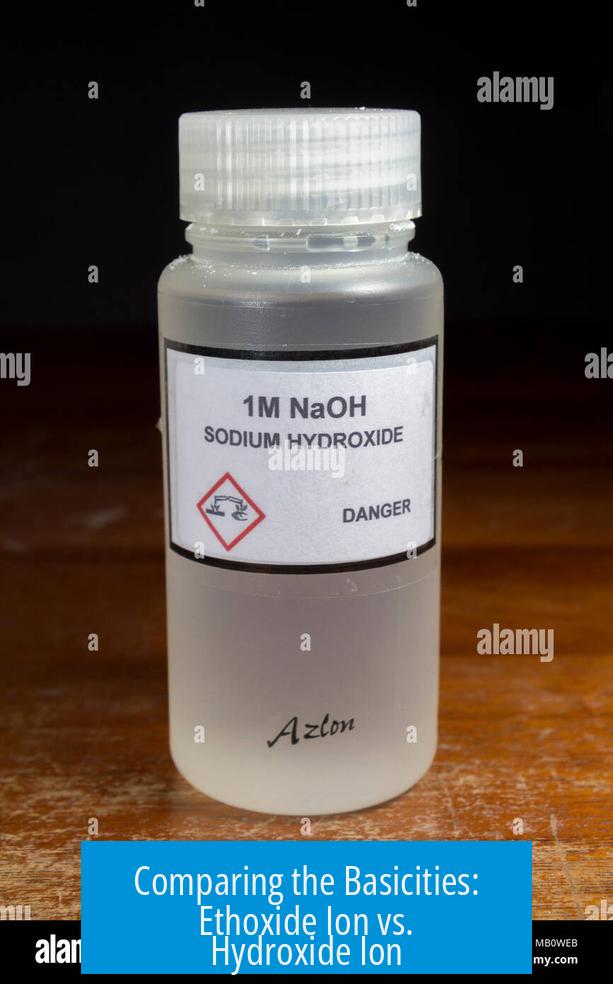
The ethoxide ion (CH3CH2O−) is a stronger base than the hydroxide ion (OH−). This is due to electron donation from the alkyl group (ethyl group) to the oxygen atom, increasing the negative charge on oxygen and enhancing its ability to accept protons. This electron-donating effect is called the inductive effect.
- Ethoxide ion: Stronger base, due to electron-donating alkyl group.
- Hydroxide ion: Strong but less basic than ethoxide.
Role of pKa Values in Acid and Base Strength
The acidity of a compound relates to its pKa value—the lower the pKa, the stronger the acid. Water’s pKa is about 15.7, while ethanol’s pKa is around 16 to 18, depending on conditions. This means water is a stronger acid than ethanol.
Since ethoxide is the conjugate base of ethanol and hydroxide is the conjugate base of water, the base strength relationship reverses:
- Conjugate base of weaker acid (ethanol) is stronger (ethoxide).
- Conjugate base of stronger acid (water) is weaker (hydroxide).
Hence, ethoxide ions in alcoholic NaOH solutions are stronger bases than hydroxide ions in aqueous NaOH.
Equilibria Between NaOH, Ethanol, and Sodium Ethoxide
In an alcohol solvent, NaOH reacts with ethanol in equilibrium:
NaOH + CH3CH2OH ⇌ CH3CH2ONa + H2O
This equilibrium heavily favors the reactants (NaOH and ethanol). However, some sodium ethoxide and water exist in solution. Although sodium ethoxide concentration is lower, its presence makes the solution more basic than an equivalent aqueous NaOH solution.
The stronger basicity of alcoholic NaOH arises because the ethoxide ion is better at accepting protons than the hydroxide ion.
Acidity of Alcoholic NaOH vs. Aqueous NaOH
This chemistry clearly indicates that alcoholic NaOH is less acidic, not more, than aqueous NaOH.
Since the ethoxide ion is a stronger base, it does not donate protons easily. Consequently, an alcoholic NaOH solution does not behave as a stronger acid.
In contrast, aqueous NaOH solutions have more free hydroxide ions that can somewhat influence acidity, but overall, NaOH remains strongly basic in any solvent.
Summary Table: Comparing Alcoholic NaOH and Aqueous NaOH
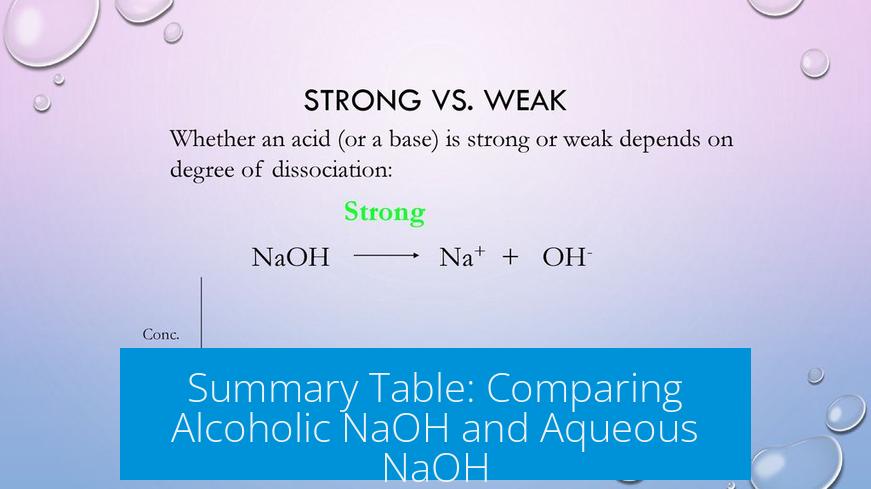
| Property | Aqueous NaOH | Alcoholic NaOH |
|---|---|---|
| Solvent | Water | Alcohol (e.g., ethanol) |
| Major Species | Na+ and OH− | Na+ and RO− (alkoxide ions) |
| Basicity | Strong base (OH−) | Stronger base (alkoxide ion) |
| Acidity | Very low (not acidic) | Even lower acidity, not an acid |
| Equilibrium effect | Complete dissociation | Equilibrium favors NaOH + alcohol over alkoxide |
Key Takeaways
- Alcoholic NaOH is not a stronger acid than aqueous NaOH; it is a stronger base.
- The ethoxide ion in alcoholic NaOH is a stronger base due to electron-donating alkyl groups.
- Ethanol has a higher pKa than water, so its conjugate base (alkoxide) is stronger.
- Aqueous NaOH fully dissociates into hydroxide ions, which are strong bases but weaker than alkoxides.
- The presence of alkoxide ions in alcoholic NaOH solutions increases basicity, not acidity.
Why is Alcoholic NaOH a Stronger Base than Aqueous NaOH? (Highschool-Level Chemistry Explained!)
Let’s clear this up right away: Alcoholic NaOH is a stronger base than aqueous NaOH, not a stronger acid. If you came here wondering why alcoholic NaOH behaves like a stronger acid, that’s a bit off track—but it’s a great chance to understand some cool chemistry concepts about bases and acids.
Now, you’re probably scratching your head, thinking, “Alcoholic NaOH? Sounds like NaOH with a cocktail twist.” Well, not quite, but it’s fascinating.
Breaking Down Acid and Base Basics
To understand why alcoholic NaOH behaves differently, let’s talk about what acids and bases do. Chemists say:
“Acids donate hydrogen ions (H+), and bases accept hydrogen ions (H+).”
So, in simple terms, a base is a hydrogen ion magnet. The more strongly it pulls in hydrogen ions, the stronger it is.
NaOH in Water—The Classic Strong Base
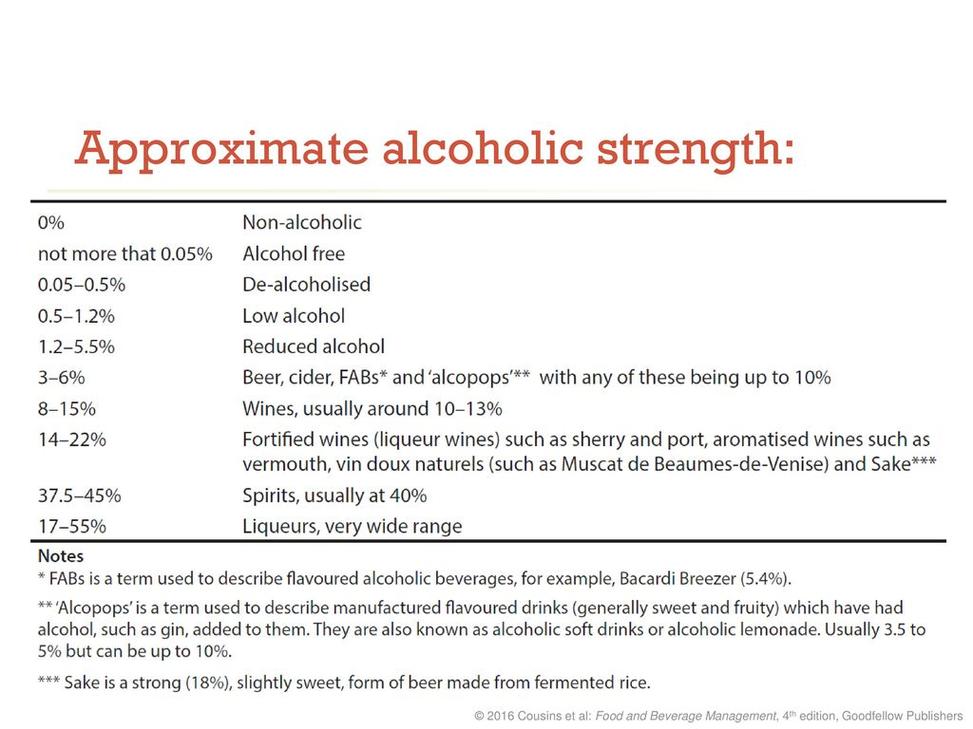
Sodium hydroxide (NaOH) is your classic strong base. When dissolved in water, it splits (dissociates) into Na+ and OH− ions. That hydroxide ion, OH−, is a champion catcher of hydrogen ions. It grabs H+ from the water to form H2O. This is why aqueous NaOH is basic and reacts strongly in water.
What Is Alcoholic NaOH Anyway?
The term “alcoholic NaOH” often confuses people. It doesn’t mean NaOH mixed with a slice of lemon or a shot of tequila. Instead, it refers to a solution where sodium reacts with alcohol, like ethanol (the kind of alcohol you find in beverages). This reaction produces sodium ethoxide (CH3CH2ONa) and hydrogen gas:
2 CH3CH2OH + 2 Na → 2 CH3CH2ONa + H2
So, alcoholic NaOH is actually sodium alkoxide, not just NaOH in alcohol.
Why is Sodium Ethoxide (Alcoholic NaOH) a Stronger Base?
The secret lies in the structure of sodium ethoxide compared to hydroxide ions. When sodium ethoxide dissolves, it releases the ethoxide ion (CH3CH2O−), which is the real base here.
- The ethoxide ion carries a negatively charged oxygen, just like OH−.
- But this oxygen also gets an electron “boost” from the ethyl group (CH2CH3) attached to it.
- This donation of electron density makes the oxygen’s negative charge stronger and more attracted to hydrogen ions.
Simply put, the ethoxide ion holds a bigger “hydrogen vacancy” and pulls protons much harder than hydroxide.
pKa Values Shed Some Light
Ever heard of pKa? It’s a number that tells you how acidic a substance is. The lower the pKa, the stronger the acid. Here’s a quick comparison:
| Substance | pKa (Approx.) | Acidity Strength |
|---|---|---|
| Water (H2O) | ~15.7 | Stronger acid |
| Ethanol (CH3CH2OH) | >16 | Weaker acid |
Because ethanol has a higher pKa than water, it’s a weaker acid. That means its conjugate base—the ethoxide ion—is stronger when compared to hydroxide.
The Equilibrium Dance: NaOH and Ethanol
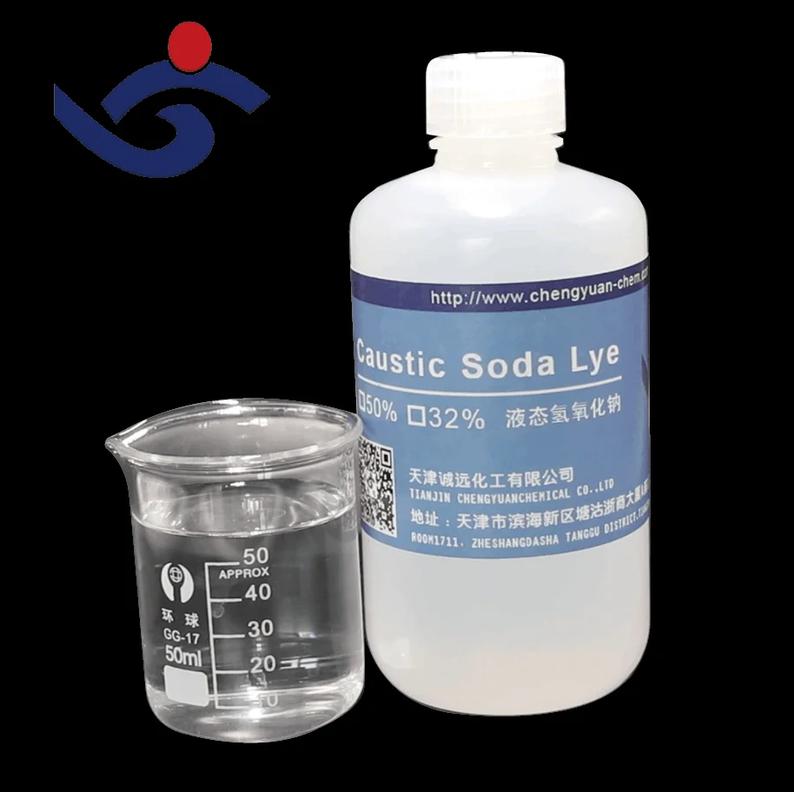
In a mix of NaOH and ethanol, an interesting equilibrium happens:
NaOH + EtOH ⇌ NaOEt + H2O
This balance usually leans LEFT, favoring reactants (NaOH and ethanol). But don’t be fooled—there’s still some ethoxide ion floating around. Even a small amount of that powerful ethoxide ion raises the base strength beyond what you’d get with OH− alone.
How Does Reactivity Differ?
Consider aqueous NaOH first: it mostly pulls H+ from water, making more OH− ions. The hydroxide is reactive and caustic—capable of breaking things down.
Now, mix NaOH in alcohol, and you get a much more eager player: the ethoxide ion. Because it forms by removing a proton from a weaker acid (ethanol), the ethoxide ion thirsts even more for hydrogen ions. It’s “hungrier,” more reactive, and stronger as a base.
Summing It All Up
- Alcoholic NaOH is sodium alkoxide (like sodium ethoxide), not just NaOH dissolved in alcohol.
- The ethoxide ion (CH3CH2O−) is a stronger base than the hydroxide ion (OH−).
- The alkyl group on ethoxide donates electrons, increasing the negative charge around oxygen.
- Ethanol’s higher pKa means its conjugate base has more base power.
- Even small amounts of ethoxide in solution increase basicity noticeably.
Why Does This Matter for You?
If you’re a student, these details help you connect the dots between structure and behavior. If you’re a chemistry hobbyist or future researcher, it explains why solvents matter in acid-base reactions. Changing the solvent from water to alcohol changes which ions dominate and how strong your base really is.
In practical terms, sodium ethoxide (alcoholic NaOH) is often the go-to base in organic chemistry because it’s more reactive and less likely to promote unwanted side reactions that water-based solutions might cause.
Fun Chemistry Thought:
Imagine your base is like a party guest. Hydroxide is enthusiastic and ready to grab a hydrogen ion immediately. Ethoxide is even more eager—like a guest who isn’t just enthusiastic but also fueled by extra caffeine (the electron-donating ethyl group). Makes you wonder if ions ever go to caffeine bars.
In conclusion: If someone calls alcoholic NaOH “a stronger acid,” gently remind them that its strength lies in basicity. It’s the ethoxide ion’s electron-rich oxygen and ethanol’s weakness as an acid that make it a stronger hydrogen acceptor. If you keep these facts straight, acid-base reactions will start making a lot more sense.
Why is alcoholic NaOH considered a stronger base than aqueous NaOH?
Alcoholic NaOH forms sodium alkoxide, which has a negatively charged oxygen. The alkyl group donates electrons, increasing the negative charge. This makes the alkoxide ion better at accepting hydrogen than hydroxide ions in water.
How does the pKa of ethanol affect the strength of alcoholic NaOH?
Ethanol has a higher pKa than water. This means ethanol is less acidic but its conjugate base, the alkoxide ion, is stronger. Therefore, sodium alkoxide is a stronger base compared to hydroxide ions from NaOH in water.
What happens when NaOH and ethanol are mixed?
They establish an equilibrium: NaOH + ethanol ⇌ sodium alkoxide + water. The reaction favors NaOH and ethanol, but some sodium alkoxide forms. This small amount makes the solution more basic than aqueous NaOH alone.
Why does the alkoxide ion have more negative charge than the hydroxide ion?
The alkyl group attached to the oxygen donates electron density. This donation increases the negative charge on the oxygen, enhancing its ability to accept protons compared to OH⁻ ions.
Is alcoholic NaOH a stronger acid than aqueous NaOH?
No. Alcoholic NaOH is not a stronger acid. It is actually a stronger base than aqueous NaOH. The provided information explains this difference in basicity, not acidity.


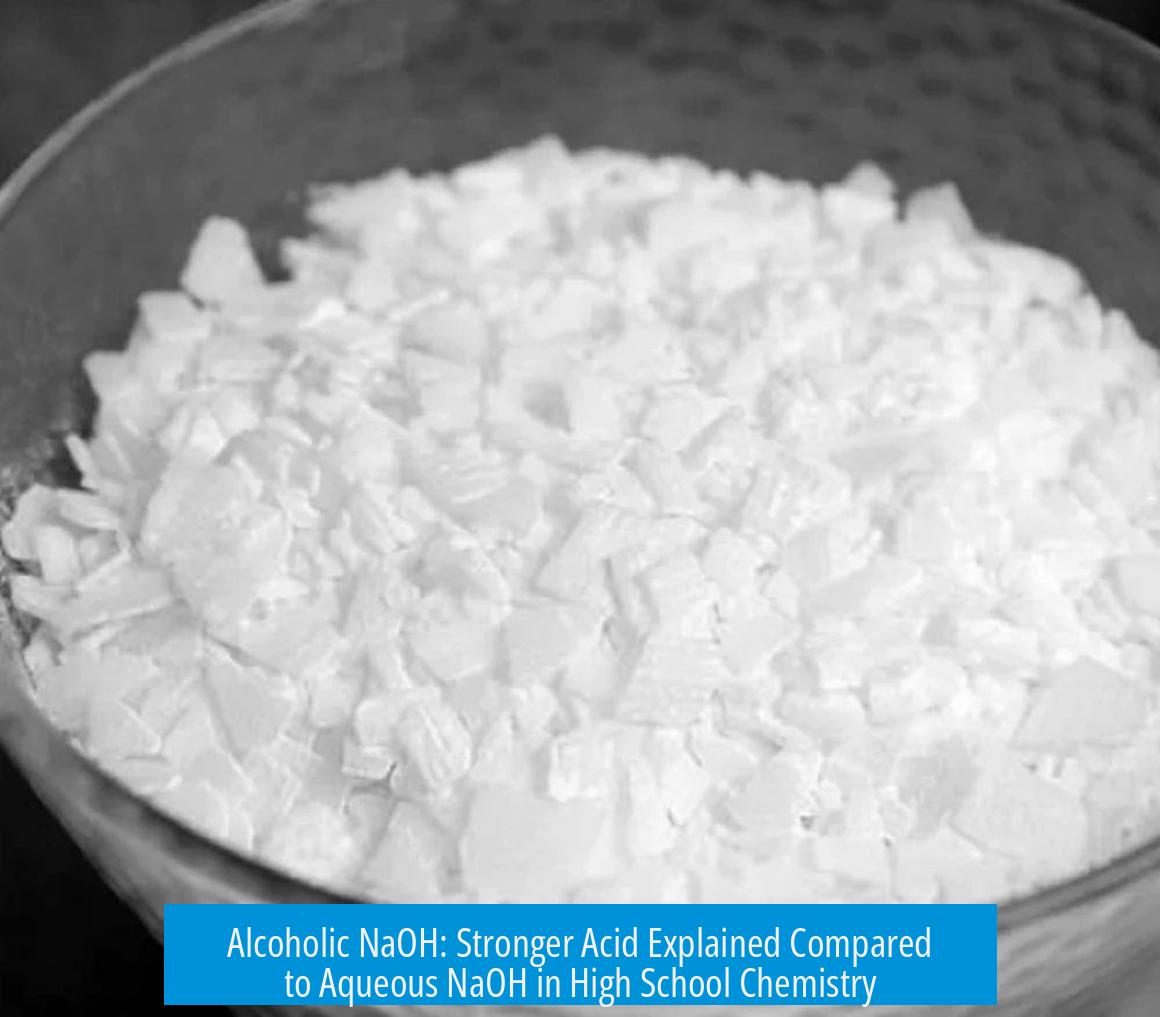


Leave a Comment